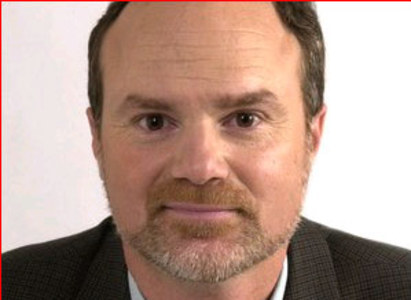Next month, during their party's national convention, Liberals from across the country will be asked to vote on a resolution recognizing "the Quebec nation within Canada," a resolution that was overwhelmingly approved last Saturday by the Liberal Party's Quebec wing.
Many delegates will have profound reservations about this resolution. The debate probably will be heart-rending for Pierre Trudeau's heirs. For Canada's sake, they should vote in favour.
The strongest argument against Michael Ignatieff's idea of recognizing Quebec as a nation within Canada is that reopening the unity file risks fuelling the separatist cause. The risk certainly exists. Yet, we also know that doing nothing -- as Stéphane Dion and Bob Rae suggest -- carries its own risks.
When Jean Chrétien became prime minister, he thought burying the constitutional issue forever would solve the Quebec problem. It nearly worked -- except for the last two weeks of the 1995 referendum campaign.
Today, after years of "doing nothing," sovereignty is as high as ever in the polls. Are Canadian politicians to close their eyes, cross their fingers and hope for the best? That would be irresponsible.
Related to this article
Does that mean the Prime Minister should rapidly convene a constitutional conference with the premiers? Certainly not. That is not what Mr. Ignatieff and his Quebec supporters propose. As Liberals and federalists, they are acutely aware of the resistance existing in English Canada toward any form of recognition of Quebec's specificity and, for that matter, any kind of constitutional negotiation. That is why the original resolution was amended, so the second paragraph now reads "that the Liberal Party of Canada will create an expert task force with the mandate of reporting to the next leader of the party on possible ways and the appropriate timing to officialize this historical and social reality."
In effect, that means the Liberal Party would make a gesture of goodwill toward Quebeckers without committing to a specific constitutional process or timetable. That is precisely what is needed: a period during which federal Liberals, and other Canadians, would calmly discuss the issue without being forced into a deal. Those who believe, as I and many Quebec federalists do, that it is important that the Quebec National Assembly eventually endorse the Canadian Constitution will use the time to explain their point of view to other Canadians and to listen to their concerns. Would another word than "nation" be better accepted? How can we prevent the sort of problems that derailed the Meech Lake and Charlottetown accords? How can we, Quebeckers, try to meet other Canadians' concerns?
We should not be naive, of course. Separatists will say that the process is too slow, that a political, non-constitutional recognition of Quebec is not enough, that the government of Quebec needs more powers (Why? Which ones?). Federalists should not let themselves be distracted by those tactics. Most Quebeckers will appreciate any sincere effort made on their behalf. If federal politicians act wisely and prudently, if they debate the issue intelligently and passionately, they will have Quebec voters on their side.
I understand the anger and impatience that many Canadians feel when they hear about Quebec's "demands." I hope they will allow me to warn them that Canada will only ignore the issue at its own peril.
I would also ask them to reflect on what former astronaut Marc Garneau, as committed a Canadian as you will find, wrote in these pages last month: "This problem will not go away by itself. The longer we wait the greater the risk. We must find a way to recognize Quebec's legitimate aspirations, not for independence but for recognition and reconciliation."
Interested Canadians should also read the report of the Liberal Party's Task Force on the Federation, headed by Martin Cauchon, a Bob Rae supporter: "In our opinion, the more Quebec feels recognized for what it really is, the more it will want to reclaim its place in the federation and bolster its contribution to Canada's growth and evolution."
So this is not only Michael Ignatieff's idea. It is a new, prudent, sincere attempt by Canadians from Quebec to assure that Canada becomes a more united and stronger country. Living in Quebec, facing the separatist threat day in and day out, they are absolutely convinced that silence or indifference or paralysis is not an option. Those Quebeckers are in no rush. But they are eager to start.
André Pratte is editorial pages editor of La Presse.
Quebec as a 'nation'? Absolument!
For Canada's sake, Liberal delegates must back Michael Ignatieff's unity idea
La nation québécoise vue par les fédéralistes québécois

André Pratte878 articles
[une chronique intitulée « Tout est pourri » (critique de Anne-Marie Gingras) ->http://books.google.fr/books?id=EZWguAMXAtsC&pg=PA27-IA27&lpg=PA27-IA27&dq=pratte+Tout+est+pourri&source=bl&ots=MUti9NTQuH&sig=h2zgJlLgOg844j5ejxnUl4zH2_s&hl=fr&sa=X&ei=73RrT8a...
Cliquer ici pour plus d'information
[une chronique intitulée « Tout est pourri » (critique de Anne-Marie Gingras) ->http://books.google.fr/books?id=EZWguAMXAtsC&pg=PA27-IA27&lpg=PA27-IA27&dq=pratte+Tout+est+pourri&source=bl&ots=MUti9NTQuH&sig=h2zgJlLgOg844j5ejxnUl4zH2_s&hl=fr&sa=X&ei=73RrT8aQEqnh0QHuh4GyBg&ved=0CEEQ6AEwBQ#v=onepage&q=pratte%20Tout%20est%20pourri&f=false]
[Semaine après semaine, ce petit monsieur nous convie à la petitesse->http://www.pierrefalardeau.com/index.php?option=com_content&task=view&id=30&Itemid=2]. Notre statut de minoritaires braillards, il le célèbre, en fait la promotion, le porte comme un étendard avec des trémolos orwelliens : « La dépendance, c’est l’indépendance ». « La soumission, c’est la liberté ». « La provincialisation, c’est la vraie souveraineté ». « La petitesse, c’est la grandeur ». Pour lui, un demi-strapontin à l’Unesco est une immense victoire pour notre peuple. C’est la seule politique étrangère qu’il arrive à imaginer pour le peuple québécois. Mais cet intellectuel colonisé type n’est pas seul. Power Corp. et Radio-Cadenas en engagent à la poche.

































Laissez un commentaire Votre adresse courriel ne sera pas publiée.
Veuillez vous connecter afin de laisser un commentaire.
Aucun commentaire trouvé